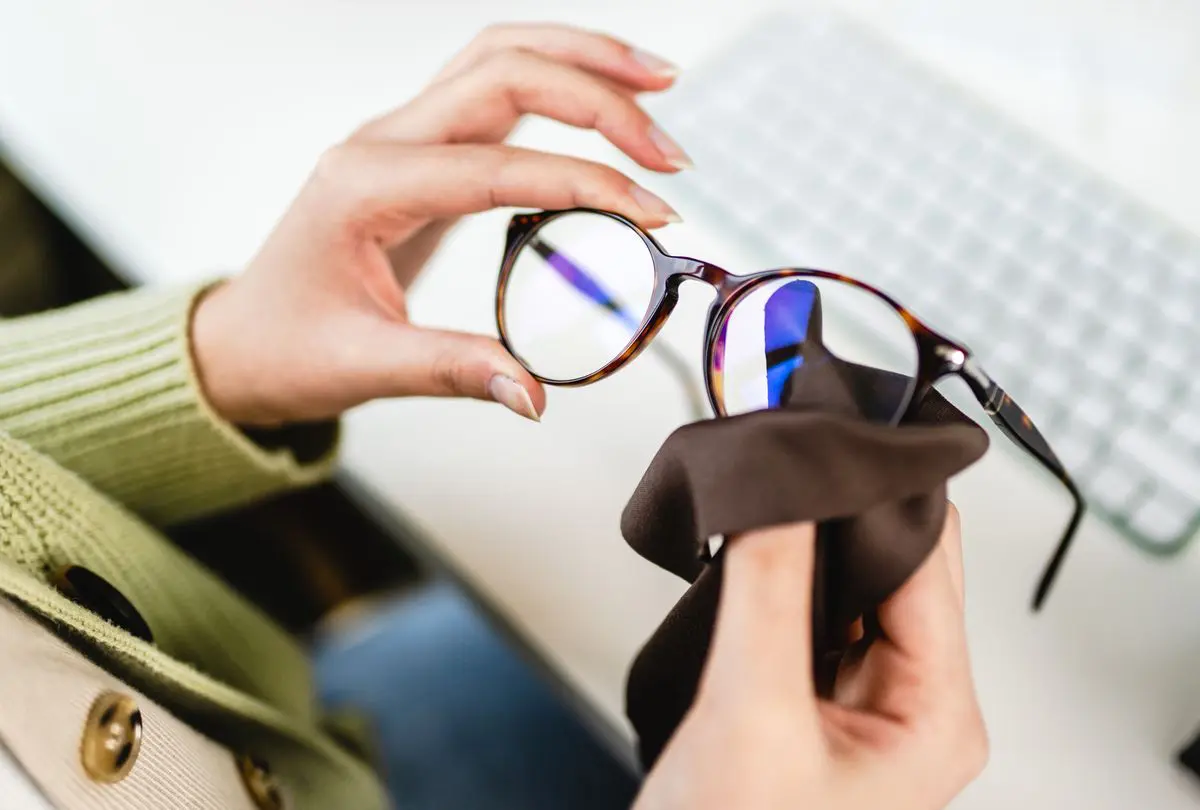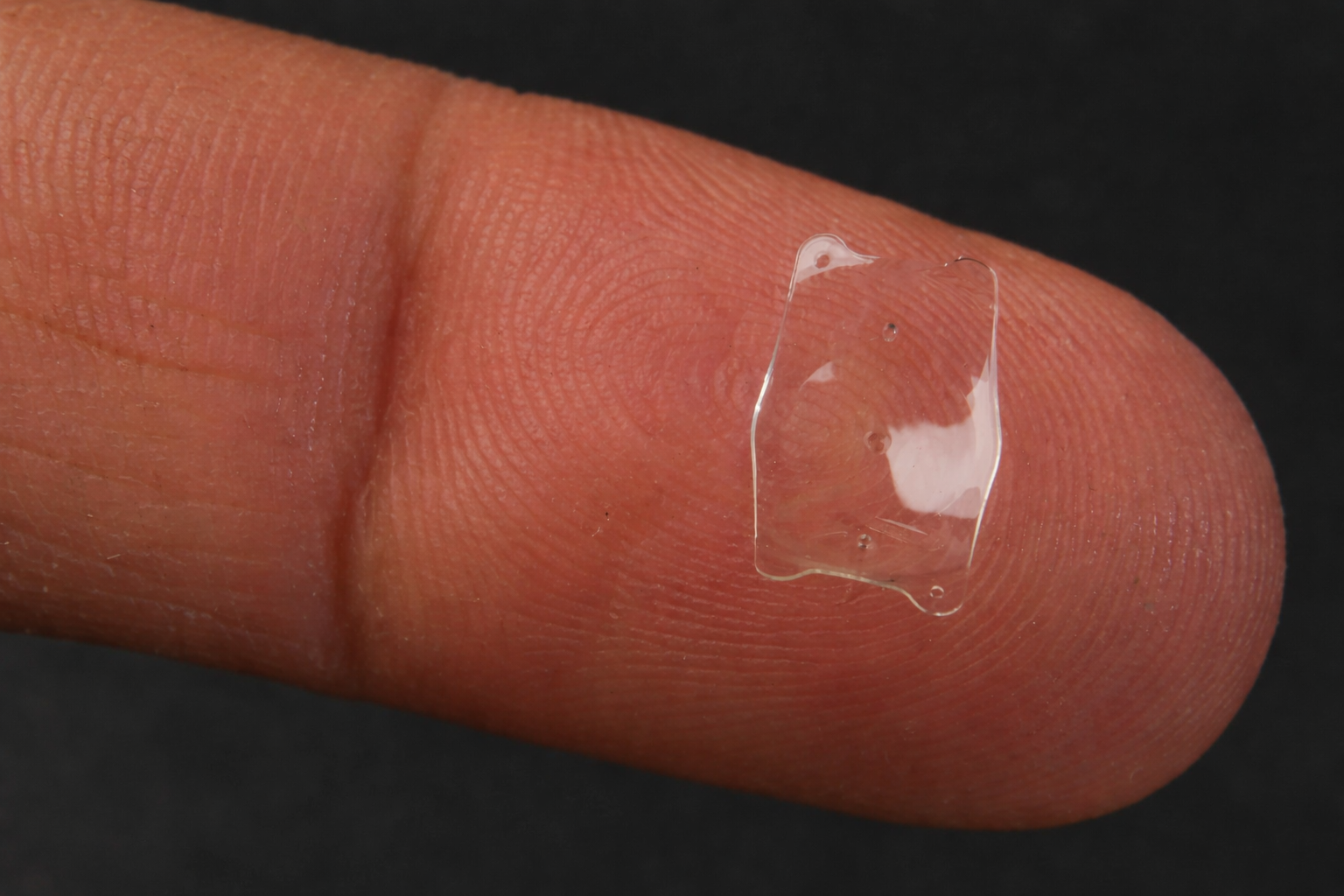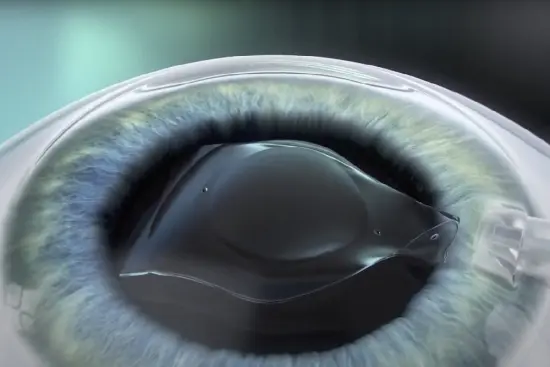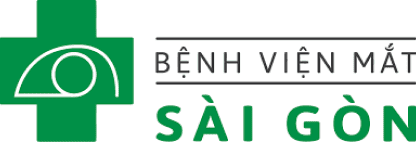Introduction
Many people often wonder: “Does wearing glasses regularly make your eyesight weaker or cause your nearsightedness to worsen faster?”
In fact, wearing or not wearing glasses frequently is not the only factor that determines whether your myopia increases or decreases. More importantly, it depends on the degree of myopia, your daily visual habits, and how well you take care of your eyes.
Does wearing glasses regularly make your myopia worse?

Wearing glasses with the correct prescription helps reduce eye strain and protect your vision effectively every day.
Wearing glasses helps light focus properly on the retina, allowing your eyes to see clearly and reducing eye strain.
However, whether you should wear them all the time depends on your prescription level and the nature of your daily activities:
- Mild myopia (below -1.5 diopters): You don’t need to wear glasses all the time. Use them only when necessary, such as driving, watching presentations, or working on a computer for long hours. Wearing glasses continuously may make your eyes rely on them, reducing natural focusing ability.
- Moderate to high myopia (above -2.0 diopters): You should wear glasses regularly. At this level, your eyes must constantly accommodate to see clearly; without glasses, they overwork to focus, leading to ciliary muscle spasm — the main reason myopia progresses faster.
- Children and students: Must wear glasses with the correct prescription so that images focus properly on the retina, preventing amblyopia and progressive school myopia.
Therefore, wearing glasses correctly and with the proper prescription helps prevent your degree of myopia from increasing, rather than making it worse as many believe.
Common causes of increasing myopia
Myopia progression can result from several factors. Ophthalmologists typically divide them into five main categories:
1. Age-related changes: Children and teenagers are most prone to myopia progression because their eyes are still developing. On average, the prescription may increase by 0.25–0.5 diopters each year until visual maturity in adulthood.
2. Wearing the wrong prescription glasses: Glasses that are too weak or too strong can cause abnormal focusing. For example, wearing underpowered glasses forces your eyes to strain to focus, while overpowered ones can cause discomfort, headaches, and blurred vision.

Working on screens for long hours without rest can make myopia progress faster.
3. Prolonged use of digital devices: Continuous near work causes constant accommodation. Blue light from phone and computer screens also contributes to dry eyes and visual fatigue, accelerating myopia progression.
4. Poor nutrition for eye health: Lack of vitamin A, zinc, lutein, and omega-3 weakens retinal and ciliary muscle functions, making eyes more prone to fatigue and poor focusing ability.
5. Insufficient eye protection: Exposure to sunlight without UV protection, working in dusty environments, or prolonged low-light conditions can harm the cornea and retina.
Understanding these causes helps you manage myopia progression more effectively and protect your eyes long term.
How to slow down myopia progression?
Modern eye care aims not only to improve vision but also to prevent myopia progression. Experts recommend the following:
✔ Regular eye examinations
Have your eyesight checked every 6–12 months. Accurate refraction tests ensure your glasses match your prescription and help detect early signs of astigmatism, hyperopia, or latent amblyopia.

Routine eye exams help detect refractive errors early and ensure the correct glasses prescription to prevent myopia progression.
✔ Wear glasses at the right time and with the right prescription
Avoid changing your prescription on your own. Mild myopia (below -1.0 diopters) may not require constant wear, but moderate or high myopia should wear glasses regularly to reduce eye strain. When reading or using a computer, maintain a distance of 30–40 cm and ensure proper lighting.
✔ Give your eyes regular breaks
Follow the 20–20–20 rule: every 20 minutes of screen time, look 20 feet (about 6 meters) away for 20 seconds. You can also gently massage around your eyes, apply warm compresses, or close your eyes for 5–10 minutes during work breaks.
✔ Add eye-friendly nutrients to your diet
| Nutrient | Food Sources | Eye Health Benefits |
|---|---|---|
| Vitamin A | Carrots, gac fruit, eggs, liver | Enhances photoreceptor cell function |
| Zinc | Beef, oysters, seafood | Helps the body absorb vitamin A effectively |
| Omega-3 (DHA) | Salmon, mackerel, chia seeds | Maintains tear film and reduces eye dryness |
| Lutein & Zeaxanthin | Spinach, kale | Protects the retina and filters blue light |
✔ Protect your eyes from UV and blue light
When outdoors, wear sunglasses with UV400 protection. If you frequently use computers, consider blue-light-blocking glasses to reduce eye fatigue and retinal damage.
✔ Spend more time outdoors
Natural sunlight helps regulate dopamine levels, a hormone that inhibits axial elongation — the main cause of progressive myopia. Children should spend at least two hours outdoors each day.
When should you consider other treatment options?
For those with high myopia, thin corneas, or rapidly increasing prescriptions, advanced treatments like Phakic ICL — implantation of a biocompatible lens made from Collamer — can improve vision without corneal damage.
This method is clinically proven to be safe, offers fast recovery, and provides stable, long-term visual results.
Wearing glasses regularly will not increase your myopia if done properly and with the correct prescription. On the contrary, appropriate glasses reduce accommodation strain, protect the retina, and maintain stable vision. Combine regular eye checkups, healthy habits, and proper nutrition to keep your eyes healthy and bright every day.
If you’re concerned about worsening myopia, visit a trusted eye care clinic for a full eye assessment and consultation. You may be recommended treatments such as Phakic ICL — a modern vision correction solution for severe myopia or thin corneas.

 vi
vi 13-Oct-2025
13-Oct-2025











 0916.741.763
0916.741.763 Appointment
Appointment